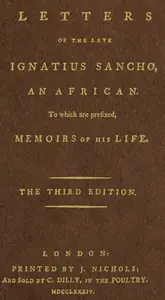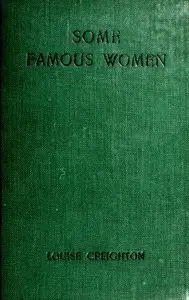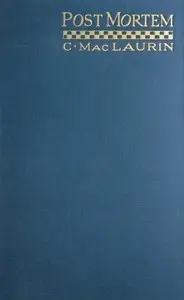"Letters of the Late Ignatius Sancho, an African" by Ignatius Sancho is a collection of letters written in the late 18th century. The letters provide a fascinating insight into the life, thoughts, and experiences of Ignatius Sancho, a former slave who became a prominent figure in British society. The topics explored in his correspondence include friendship, philanthropy, and reflections on human nature, showcasing his intellect and humanity. At the start of the work, the editor introduces Sancho's letters, explaining that they are collected from various friends and were never intended for publication. The memoir highlights Sancho's remarkable life, detailing his origins aboard a slave ship and his eventual rise to be a butler and grocer in England. The opening portion touches on his early adversity, education, and relationships with influential figures, such as the Duchess of Montagu, illuminating his character and literary talents that emerge throughout his letters. Sancho’s writing reflects a blend of wit, wisdom, and a keen understanding of humanity, setting the tone for a rich and enlightening exploration of his thoughts and societal observations. (This is an automatically generated summary.)

Letters of the Late Ignatius Sancho, an African To Which Are Prefixed, Memoirs of His Life
By Ignatius Sancho
"Letters of the Late Ignatius Sancho, an African" by Ignatius Sancho is a collection of letters written in the late 18th century. The letters provide ...
Charles Ignatius Sancho was a British abolitionist, writer and composer. Born on a slave ship in the Atlantic, Sancho was sold into slavery in the Spanish colony of New Granada. After his parents died, Sancho's owner took the two-year-old orphan to Britain and gifted him to three sisters living in Greenwich, where he remained for eighteen years. Unable to bear being a servant to them, Sancho ran away to the Montagu House in Blackheath, London where John Montagu, 2nd Duke of Montagu taught him how to read and encouraged Sancho's budding interest in literature. After spending some time as a butler in the household, Sancho left and started his own business as a shopkeeper, while also starting to write and publish various essays, plays and books.













